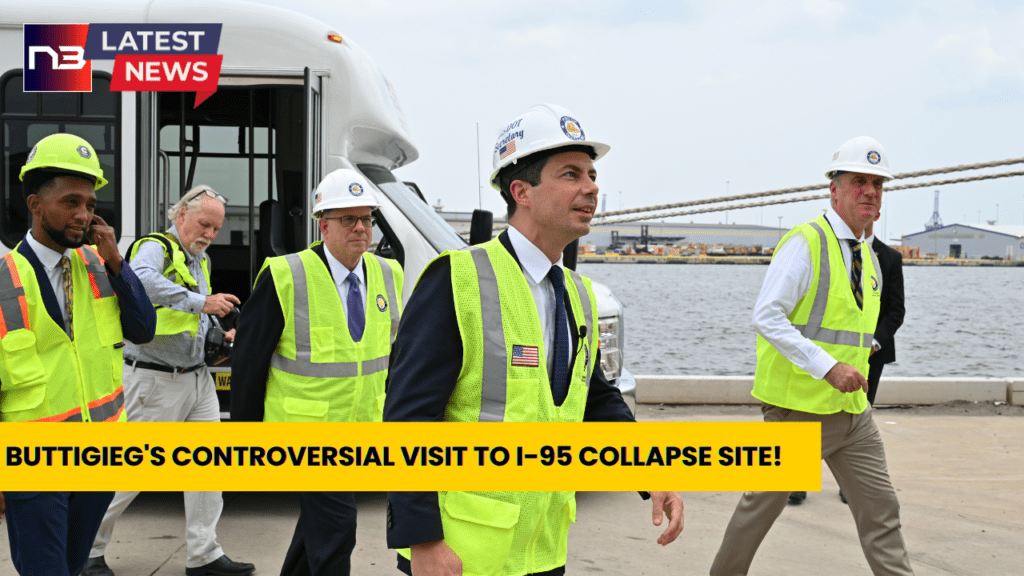In a stunning turn of events, Department of Transportation Secretary Pete Buttigieg is caught in a storm of controversy over his delayed response to a major crisis. As questions mount and accusations fly, we uncover the truth behind his actions. Prepare to be shocked as we reveal the hidden agenda behind Buttigieg’s inconsistent priorities.
Department of Transportation Secretary Pete Buttigieg is under fire for the glaring disparity in his response times to two critical incidents. The first incident occurred in East Palestine, Ohio, on February 3 when a train derailment led to a hazardous chemical spill. Astonishingly, it took Buttigieg nearly two weeks to visit the site and address the concerns of the affected community.
Fast forward to June 11, when a tanker truck caught fire, resulting in a partial collapse of the I-95 interstate in Philadelphia. Buttigieg wasted no time in rushing to the scene, showing up within a couple of days. This stark contrast in response time has raised eyebrows and fueled accusations of neglect and favoritism.
When pressed by a reporter on the discrepancy, Buttigieg attempted to defend himself. He claimed that his decision to visit the I-95 collapse site quickly was an intentional departure from the norm for transportation secretaries. He emphasized the importance of being present and countering the politicization and misinformation that plagued the people of East Palestine. Buttigieg insisted that we are living in a new world where presence and coordination are paramount.
However, critics argue that Buttigieg’s explanation falls short. They point out that his delayed response to the East Palestine crisis left the community feeling abandoned and unheard. The residents faced not only the immediate dangers of the chemical spill but also the long-term consequences. Buttigieg’s absence during that crucial period drew sharp criticism and fueled the perception of indifference.
Furthermore, this incident is not an isolated case of Buttigieg’s questionable leadership. He has faced severe backlash for his handling of various crises, including the Federal Aviation Administration’s largest grounding of domestic flights since the September 11 attacks and significant supply chain delays. These incidents have raised doubts about his ability to effectively manage and respond to emergencies.
The confrontation between Buttigieg and the reporter shed light on the frustration and anger brewing in East Palestine. The residents felt ignored and disregarded by a leader who seemed more interested in photo ops than in addressing their concerns. This tense encounter captured the essence of the controversy surrounding Buttigieg’s leadership and highlighted his dismissive attitude towards accountability.
Department of Transportation Secretary Pete Buttigieg’s contrasting response times to the East Palestine train derailment and the I-95 collapse in Philadelphia have ignited a firestorm of criticism. His delayed visit to the chemical spill site, coupled with a swift response to the collapse, raises serious questions about his priorities and leadership. As the public demands answers, the credibility of Buttigieg’s management and his commitment to the American people hang in the balance.
The stark contrast between Buttigieg’s actions in Ohio and Philadelphia leaves no room for ambiguity. The delayed visit to East Palestine and the subsequent rush to the I-95 collapse site reveal a disturbing pattern of inconsistent priorities. With accountability on the line, the American people deserve a secretary who puts their needs first.



